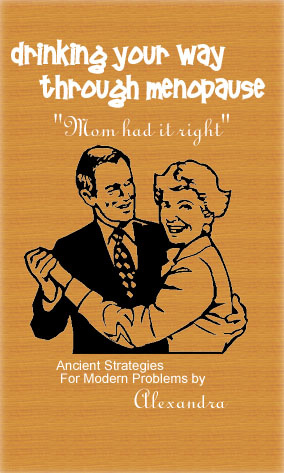Menopause
Menopause is the permanent cessation of menstruation which occurs a considerable length of time before the end of the  lifespan. The term comes from the Greek words ‘meno’ (meaning month) and pausis (a halt). The term is used in a broader sense, and menopause is the permanent stopping of female reproductive cycles of various lengths and kinds.
lifespan. The term comes from the Greek words ‘meno’ (meaning month) and pausis (a halt). The term is used in a broader sense, and menopause is the permanent stopping of female reproductive cycles of various lengths and kinds.
Symptoms
The menopause is the end of egg production (ovulation). This occurs as a result of falling levels of the female sex hormone, oestrogen, which regulates menstruation. A woman’s periods do not usually stop suddenly, although this can happen. They usually become less frequent, the odd period is missed, and then they stop altogether. A woman is said to have reached the menopause once she has not had a period for one year. After this point, she can be described as post-menopausal. The time leading up to the menopause is known as the peri-menopause.
During the peri-menopause, the hormonal and biological changes that are associated with the menopause begin. As a result of these hormonal changes, many women experience both physical and emotional symptoms.
If the menopause occurs in a woman who is under 45 years of age, it is known as premature menopause. It is estimated that premature menopause affects 1% of women under the age of 40 and 0.1% of women who are under the age of 30.
Hot Flushes
A hot flush is a sudden feeling of heat in the upper body, which can start in your face, neck or chest, before spreading upwards and downwards. This may increase the heartrate also. Hot flushes that occur at night are called night sweats. Most hot flushes only last for a few minutes, and are most common in the first year after the final period.
Sleep Disturbances
Many menopausal women have trouble sleeping due to anxiety or insomnia. It may also affect short-term memory and ability to concentrate.
Vaginal Atrophy
During the peri-menopause, some women experience vaginal dryness, itching or discomfort. This can cause sex to become difficult or painful, which is known as dyspareunia. These symptoms combined are known as vaginal atrophy.
Urinary symptoms
During the menopause, some women become more prone to recurrent lower urinary tract infections, such as cystitis. Some may also experience an urgent need to pass urine, and need to pass it more often than normal.
Age of Onset
The typical age range for the occurrence of menopause is between the ages of 45 and 55. The average age of menopause varies according to geographic location. In the Western world, the average age of menopause is 51 years. In some developing countries, such as India and the the Philippines , the median age of natural menopause is considerably earlier, at 44 years.
In the Western World, last period ever occurring between the ages of 55 to 60 is known as a “late menopause”, and an “early menopause” is defined as having one’s final period somewhere between the ages of 45 to 50.
Rarely, the ovaries stop working at a very early age, anywhere from the age of puberty to age 20, and this is known as premature ovarian failure (POF), or “premature menopause”. 1% of women experience POF. Some known causes of premature menopause include autoimmune disorders, thyroid disease, diabetes mellitus, chemotherapy, eating disorders, and radiotherapy. Rates of premature menopause have been found to be significantly higher in fraternal and identical twins; approximately 5% of Sex differences and Twins reach menopause before the age of 40. The reasons for this are not completely understood.
On average, women who Smoking and Gender Equality experience menopause significantly earlier than non-smokers.
Treatment
There are a number of treatments to relieve the symptoms of menopause:
- Hormone replacement therapy (HRT) is effective in treating several of the most common menopausal symptoms, including hot flushes and night sweats, vaginal symptoms such as dryness and itching, and urinary symptoms such as recurrent lower urinary tract infections. HRT works by replacing oestrogen, which naturally begin to fall in the approach to menopause, causing menopausal symptoms.
- Tibolone is a synthetic steroid that acts in the same way as HRT. It may be used as an alternative to traditional combined HRT for post-menopausal women who want to end their periods. Like HRT, tibolone is effective in treating menopausal symptoms such as hot flushes and night sweats, and it can help to prevent spine fractures. It may also improve sexual problems, such as a decreased sex drive.
- SERMs are a category of drugs, either synthetically produced or derived from a botanical source (Phytoserms), that act selectively as agonists or antagonists on the estrogen receptors throughout the body.
- Some antidepressants have been used with some success in the treatment of hot flashes, improving sleep, mood, and quality of life.
References
- Walker ML and Herndon JG (2008). “Menopause in nonhuman primates?”. Biology of Reproduction 79: 398-406. doi:10.1095/biolreprod.108.068536.
- What Every Woman Needs to Know about Menopause, Yale University Press, ISBN 0300072619
- Ringa, V. .(2000). Menopause and treatments. Quality of life research 9(6): 695-707.
See Also
- Centre for Category:Health and Talk:Gender Equality
- International Council on Women's Category:Health Issues (ICOWHI)


